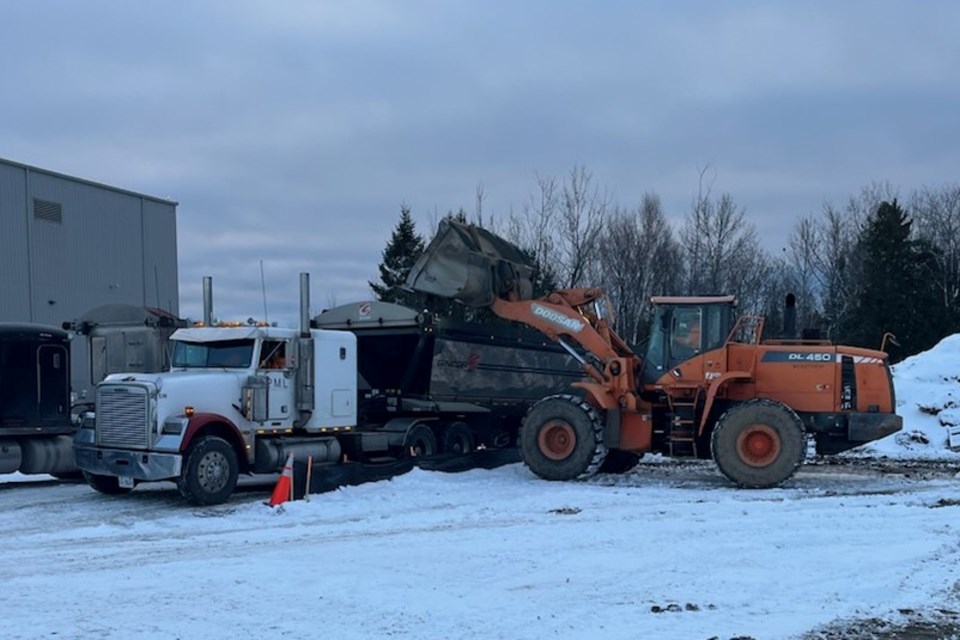The City of North Bay has provided an update on the remediation efforts in the ongoing local quest to determine and address the extent of the soil and groundwater contamination due to PFAS.
"Remediation efforts for PFAS (per- and polyfluoroalkyl substances) are now underway at the Jack Garland Airport lands," the City of North Bay shared on its social media channels. "Over the coming weeks, the work will focus on excavating and removing contaminated soils, which will be safely transported to a disposal site for destruction. Additionally, absorptive material is being injected at the excavated hot spots."
See related: New federal objective puts local drinking water over PFAS limit
Jacobs Consultancy Canada Inc. developed the remediation plan for North Bay. "The first phase, which focuses on preventing PFAS from leaving the site, includes soil, groundwater, and surface water remediation in the most contaminated areas, also known as 'hot spots,' according to a report prepared by Karin Pratte, the City of North Bay's director, water, wastewater and environmental services. "This project will ensure the removal and treatment of the most contaminated soil at the North Bay Jack Garland Airport lands."
According to the Department of National Defence, drilling began in early autumn "to better understand the level and extent of Per- and Polyfluoroalkylated Substances (PFAS) in the area." A news release from DND stated work was to take place at locations on 22 Wing CFB North Bay, on Carmichael Drive, and south of 22 Wing between Ayr Street and Airport Road.
See also: Drilling imminent to assess PFAS contamination around 22 Wing
This drilling program targeted a bedrock valley that is a key feature affecting the movement of PFAS in the area. Monitoring wells were installed at the drilling locations to allow for groundwater sampling and testing.
PODCAST: 'There is PFAS in our municipal drinking water'
Concerns remain about the level of contamination that has seeped into North Bay's source of drinking water.
See: Public session on 'forever chemicals' in North Bay's drinking water
"Future work will involve installing adsorptive materials along the site’s boundary to treat groundwater before it leaves the area," per the City.
DND and the City of North Bay signed an agreement in 2021 to begin the remediation of the PFAS-contaminated area at Jack Garland. The $20-million contribution agreement is funded by DND at 97 per cent ($19.4 million) and the City at 3 per cent (to a maximum of $600,000). According to a City of North Bay staff report, "The shared responsibility agreements allow the City to submit a second proposal, if required, through the shared responsibility framework for additional costs of the remediation once a more detailed project estimate can be obtained."
See: Deal to remove PFAS 'hot spots' to treat most contaminated soil
As part of the 2021 agreement, in September, North Bay City Council approved a $7.31-million contract for "forever chemicals" soil remediation work at the Jack Garland Airport by Clean Harbors Canada.
The remediation is necessary as DND used fire-fighting foam containing PFAS between the early 1970s and mid-1990s at the airport site while Transport Canada owned it from 1939–98. The City of North Bay has owned the Jack Garland Airport property since 1998. It is confirmed locations on the Jack Garland site exceed current guidelines for PFAS in soil, groundwater, and surface water.
In 2017, testing on Lees Creek showed a waterway polluted with PFAS from the military base located just upstream. The creek empties into Trout Lake just a few hundred yards from the city's drinking water plant. A long-standing drinking water advisory for Lees Creek remains in place, as does a fish consumption advisory for fish from the creek issued by the Ontario Ministry of the Environment, Conservation and Parks (MECP).
Health information exists for only a small number of PFAS. What is known is that some PFAS may affect many systems and organs, such as the liver, kidney, and thyroid; the immune and nervous systems; development and the reproductive system, metabolism, and body weight.
"The potential health risks from exposure depend on how much and how many of the PFAS you are exposed to and for how long," according to Health Canada. "Each person's specific attributes including age, habits, and overall health can impact how their body will react to chemical exposures."
